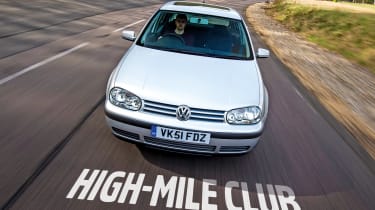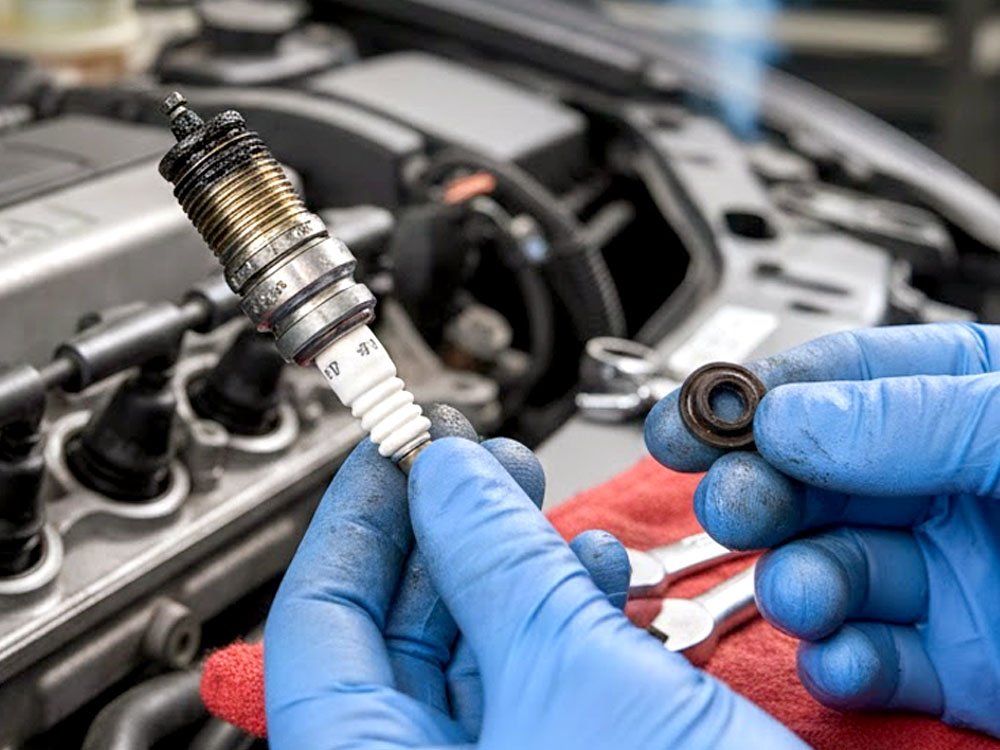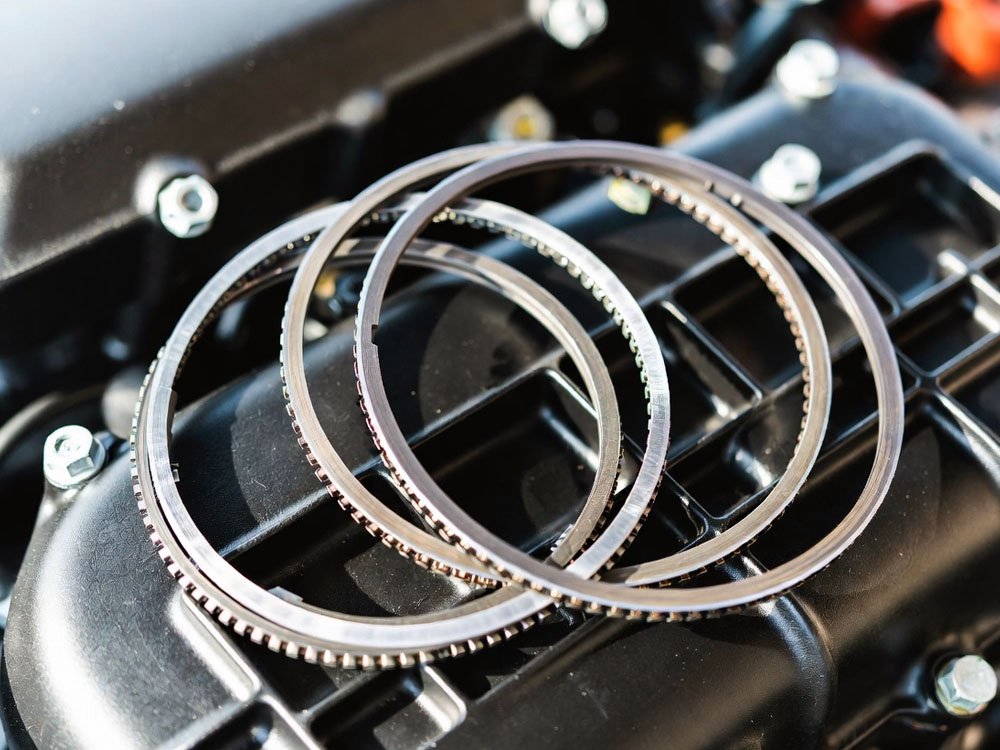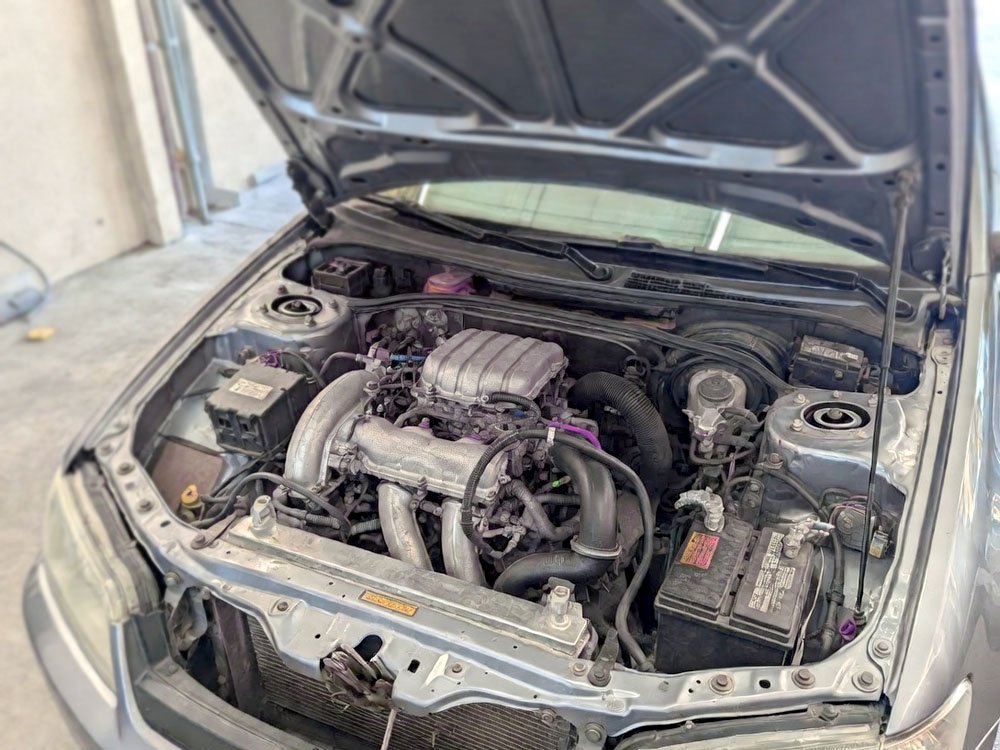Buying a car with 100K miles isn’t necessarily bad, but consider the maintenance history. High mileage doesn’t always mean the car is unreliable or nearing the end of its lifespan.
Factors like maintenance, driving habits, and overall condition play a bigger role in determining if a car with 100K miles is a good buy. Before making a decision, it’s essential to have the car thoroughly inspected by a mechanic to identify any potential issues and assess its overall health.
By understanding the car’s maintenance history and current condition, you can make an informed decision on whether buying a car with 100K miles is a wise investment.

Credit: www.thecarmomofficial.com
Factors To Consider
When buying a car, one of the most important factors to consider is the mileage. Many car buyers feel hesitant when they come across a vehicle with 100,000 miles on the odometer. However, whether or not buying a car with 100K miles is a bad idea depends on several key factors. Here are some factors you should keep in mind to make an informed decision:
Mechanical Condition
The first factor to consider when buying a car with 100K miles is its mechanical condition. Check if the car has undergone regular maintenance and if all major components like the engine, transmission, and suspension are in good working condition. Cars that have been well-maintained and regularly serviced are more likely to be reliable even with a higher mileage.
Maintenance History
Another important factor to consider is the maintenance history of the car. Look for a vehicle with a detailed service record that shows regular oil changes, fluid flushes, and other maintenance tasks. Furthermore, if the car has recently had any major repairs or replacements, it indicates that the previous owner took proper care of the vehicle. A comprehensive maintenance history is a positive sign that the car will continue to perform well.
Type Of Car
The type of car you are considering also plays a significant role in determining if 100K miles is bad. Some car models are known for their longevity and can easily surpass the 100,000-mile mark without major issues. Research the specific make and model to identify if it has a reputation for reliability and if high mileage is common among owners of that particular vehicle.
Price
Lastly, the price of the car should be taken into consideration. A vehicle with higher mileage is generally expected to have a lower price tag compared to a low-mileage counterpart. Consider the overall value and condition of the car in relation to its price. If the car has been well-maintained, has a good service history, and is priced accordingly, buying a car with 100K miles may be a smart financial decision.
Advantages Of Buying A Car With 100k Miles
When it comes to buying a car, many people steer clear of vehicles with 100K miles on the odometer. However, opting for a car with higher mileage can actually offer several advantages. Let’s take a closer look at the benefits of buying a car with 100K miles.
Lower Price Tag
By choosing a car with 100K miles, you can enjoy a significantly lower price tag compared to newer models. This can make purchasing a vehicle more affordable, allowing you to allocate your budget towards other important expenses.
Potential For Bargaining
When buying a car with higher mileage, there is often more room for negotiation. Sellers are typically more willing to lower the price in order to make a sale. This provides an opportunity for you to secure a better deal and potentially save money on your purchase.
Less Depreciation
One of the advantages of buying a car with 100K miles is that it has already experienced the majority of its depreciation. Newer vehicles can lose a significant portion of their value during the first few years, whereas a car with higher mileage may retain its value more effectively, offering a better return on investment.
Disadvantages Of Buying A Car With 100k Miles
Disadvantages of Buying a Car with 100K Miles
Potential For Costly Repairs
A car with 100K miles may require frequent and expensive repairs, leading to financial strain.
Higher Risk Of Breakdowns
With increased mileage, the car is more prone to sudden breakdowns and malfunctions.
Limited Warranty Coverage
At 100K miles, many warranties expire, leaving you responsible for all maintenance costs.

Credit: www.autoexpress.co.uk
How To Assess The Condition Of A Car With 100k Miles
When considering buying a car with 100K miles, it’s crucial to assess its condition thoroughly. By examining the exterior, interior, test driving, and getting a professional inspection, you can make an informed decision.
Inspecting The Exterior
- Check for rust, dents, and scratches.
- Inspect the tires for wear and tear.
- Look at the condition of the paint.
Checking The Interior
- Check the upholstery for tears or stains.
- Test all the electronics and controls.
- Look for signs of water damage or musty odors.
Test Driving
- Listen for any unusual noises while driving.
- Test the brakes, acceleration, and steering.
- Pay attention to how the car handles on different road conditions.
Getting A Professional Inspection
- Schedule an inspection with a trusted mechanic.
- Have them check the engine, transmission, and overall mechanical condition.
- Get a detailed report on any potential issues and estimated repair costs.
Tips For Buying A Used Car With 100k Miles
When you’re in the market for a used car with 100K miles, it’s important to consider a few essential tips. Buying a car at this mileage mark can be a smart move, especially with meticulous maintenance history and a thorough pre-purchase inspection. Here are some key factors to keep in mind when buying a used car with 100K miles.
Pre-purchase Inspection
A pre-purchase inspection is crucial when considering a used car with 100K miles. Performing a thorough inspection of the vehicle’s condition, including its engine, transmission, suspension, and overall structure, can help reveal any potential issues and provide peace of mind before making a purchase.
Research The Vehicle History
Researching the vehicle history is essential in making an informed decision. Obtain a comprehensive vehicle history report to check for any previous accidents, maintenance records, and potential red flags. This information can provide valuable insights into the car’s past and help in assessing its overall condition.
Consider The Owner’s Maintenance
Consider the owner’s maintenance records to gauge the care the vehicle has received. Look for regular servicing and maintenance to ensure the car has been well-cared for. A vehicle with a consistently followed maintenance schedule is more likely to be reliable in the long run.
Consult A Mechanic
Before finalizing your purchase, it’s advisable to consult a qualified mechanic to inspect the vehicle. A mechanic can identify any underlying issues that may not be apparent during a standard inspection and offer valuable insight into the overall condition of the car.
Credit: www.quora.com
Common Myths About High-mileage Cars
Thinking twice about buying a high-mileage car? 100K miles is not necessarily a bad thing. Common myths about high-mileage cars often overlook the benefits of proper maintenance and the potential for reliable performance.
When it comes to buying a used car, one of the most common concerns is the number of miles on the odometer. Many people believe that buying a car with 100K miles or more is a bad idea, but is there any truth to this belief? Let’s debunk some of the common myths about high-mileage cars.
High Mileage Means Worn Out
One of the biggest misconceptions about high-mileage cars is that they are automatically worn out and unreliable. However, this is far from the truth. While it’s true that a car with more miles on it has been driven more, it doesn’t necessarily mean that the car is in poor condition.
In fact, the longevity and durability of modern cars have improved significantly over the years. With regular maintenance and proper care, a high-mileage car can still perform just as well as a low-mileage one. It all comes down to how well the previous owner maintained and serviced the vehicle.
It’s important to note that not all miles are equal. A car that has primarily been used for long highway drives is likely to have less wear and tear compared to a car used for short city commutes with frequent stop-and-go traffic.
Reliability Is Compromised
Another myth associated with high-mileage cars is that their reliability is compromised. However, this is not necessarily the case. While older cars with high mileage may require more maintenance and repairs, it doesn’t mean that they will leave you stranded on the side of the road.
The key to ensuring the reliability of a high-mileage car is to have a trusted mechanic thoroughly inspect the vehicle before making a purchase. They can identify any potential issues and provide an estimate of the future maintenance costs.
Additionally, many high-mileage cars have proven to be reliable and have stood the test of time. Popular models known for their reliability, such as Honda Accord and Toyota Camry, often have satisfied owners who have driven their vehicles well past the 100K mile mark.
High Maintenance Costs
A common concern among buyers is the assumption that high-mileage cars come with high maintenance costs. While it’s true that regular maintenance and occasional repairs are part of owning any car, the notion that high-mileage cars are automatically costly to maintain is a misconception.
In reality, the cost of maintaining a high-mileage car largely depends on its make, model, and the previous owner’s maintenance history. With proper maintenance and timely repairs, many high-mileage cars can continue to be cost-effective to own and operate for several more years.
While it’s essential to budget for potential repairs and maintenance costs, high mileage alone should not deter you from considering a used car. It’s crucial to research the specific make and model, consult with a trusted mechanic, and take into account the overall condition and maintenance history of the vehicle.
So, if you come across a car with 100K miles, don’t automatically assume it’s a bad option. By dispelling these common myths about high-mileage cars, you can make an informed decision based on the actual condition and reliability of the vehicle.
Benefits Of Regular Maintenance
Buying a car with 100,000 miles on the odometer might seem like a risky decision to some, but the reality is that it’s not necessarily a bad thing. In fact, there are several benefits to consider before making a judgment. One crucial factor that can have a significant impact on a high-mileage vehicle is regular maintenance. By properly maintaining your car, you can enjoy an extended lifespan, improved performance, and better resale value.
Extended Lifespan
Regular maintenance plays a vital role in extending the lifespan of a car with 100K miles. When you diligently follow the manufacturer’s suggested maintenance schedule, you ensure that all critical components are inspected, serviced, and replaced as necessary. This proactive approach prevents issues from escalating into major problems and keeps your vehicle running smoothly for years to come. Along with regular oil changes, scheduled inspections, and fluid flushes, taking care of your car’s maintenance needs can help it stay on the road well beyond the 100K milestone.
Improved Performance
Another notable benefit of regular maintenance is improved performance. As your car racks up miles, wear and tear can take a toll on various parts, such as belts, hoses, and filters. Failing to replace these components in a timely manner can lead to decreased performance and even engine damage. By adhering to maintenance guidelines, you can ensure that these crucial parts are regularly checked, repaired, or replaced if needed. This not only helps your vehicle maintain its optimal performance but also enhances fuel efficiency and reduces the risk of breakdowns.
Better Resale Value
A well-maintained car has a higher resale value, regardless of its mileage. When potential buyers see documented evidence of regular maintenance, it instills confidence and reassurance that they are getting a reliable vehicle. Regular maintenance records act as a testament to the care and attention you’ve given to your car, distinguishing it from others in the used car market. With better resale value, you can potentially recoup a larger portion of your investment when it’s time to sell or trade-in your high-mileage car.
So, when considering whether to buy a car with 100K miles, don’t let the mileage alone deter you. Remember that regular maintenance is key to enjoying an extended lifespan, improved performance, and better resale value. By staying on top of your car’s maintenance needs, you can confidently make the most out of your high-mileage vehicle.
Alternatives To Buying A Car With 100k Miles
When considering whether to purchase a car with 100K miles, it’s important to explore alternatives that may offer better value and dependability. Let’s take a look at some viable alternatives to buying a vehicle with high mileage:
Financing A Newer Car
If you’re concerned about the reliability of a high-mileage vehicle, financing a newer car could be a viable option. Newer cars often come with manufacturer warranties, providing peace of mind and potential cost savings on repairs.
Leasing A Vehicle
Leasing a vehicle allows you to enjoy the benefits of driving a newer car without the long-term commitment of ownership. With a lease, you can avoid the potential maintenance issues that come with higher mileage vehicles, while also benefitting from lower monthly payments.
Considering Certified Pre-owned Cars
Another alternative to buying a car with 100K miles is to consider certified pre-owned (CPO) cars. These vehicles undergo rigorous inspections and come with extended warranties, making them a reliable and cost-effective choice for buyers seeking peace of mind.
Conclusion
Buying a car with 100K miles can be a prudent choice with proper inspection and maintenance. Mileage alone doesn’t determine a car’s condition, and many factors contribute to its reliability. It’s crucial to assess the vehicle’s history, upkeep, and overall condition before making a decision.
With careful consideration, a high-mileage car can offer great value and reliability for years to come.


